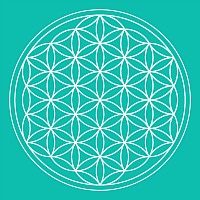A Vision Through the Mist
Community-Driven Solutions
Finding Camelot is a nonprofit organization dedicated to creating a cooperative housing network that empowers individuals and families through affordable living, shared responsibilities, and personal growth.
Our mission is to foster emotional intelligence, heal generational trauma, and promote economic empowerment by providing sustainable solutions for the working classes.
By prioritizing people over profit, we aim to build a culture where everyone has the opportunity to thrive emotionally, socially, and spiritually.
- We are a network of cooperative properties owned by the nonprofit, purchased and then renovated to meet the unique demands of cohabitation with tax-deductible donations.
- We are a model that shows people how to live comfortably in close quarters, starting with a single household and expanding from there.
- We are a system that reduces the cost of living through cooperation, enabling members to control how their time and labor is valued.
- We are a movement that empowers the working class by fostering collective bargaining on a massive scale.
Household Membership: Affordable Living for Modern Families
The core of our network consists of our deluxe members and their families.
Deluxe: $500/month
- Two Room Credits
- All Utilities
- Household Streaming
- Delivery Services
- 25-30% of Grocery Budget
For children, we offer as many dependant membership add-ons as needed.
Up to Two Dependents: $250/month
- Communal Accommodations
- Childcare Included/CareShare Enrollment
- 33-66% of Meals Included
Customized Estates for Modern Communal Living
A functional blend of estate manor and community center; these facilities are designed for comfortable living, childcare, and entrepreneurship.
Logos (divine wisdom) Nostos (returning home) Estates
- CareShare Program: Members of the household work with members the local community, taking turns to care for each other's children
- MealShare Program: Expanding meal prep into a sustainable resource
- Extended Foster Program: Provides young parents and their children with options, opportunities, stability, and support.
Collaborative Childcare: Building Better Adults for a Better Tomorrow
- We can't control what others do behind closed doors but we can encourage and support each other in making healthy choices
- Gentle accountability through peer recognition, horizontal leadership structures, and a clear grievance resolution policy
- Childcare is provided through a rotating household schedule to distribute responsibilities equitably and alliveate caregiver stress
- Exposure to multiple perspectives allows children to form their own opinions on how to be an effective adult
Dependent Lodging: Designed for Growth
- Member’s Room (under 1): from birth until age 1 at the earliest, a child sleeps in the room with their guardian household member
In Household Complexes the specifics of accommodation depend on the needs of the household and the room availability of the renovated structure.
At all Logos Nostos Estates there are purpose-built dependent quarters:
- The Nursery (Ages 1-6): Full supervision, no assigned chores, focus on early development
- The Bunkroom (Ages 7-12): Shared responsibilities, independent problem-solving, cooperative learning through natural consequences
- The Dorms (Ages 13+): Near full autonomy, structured independence with personal and group responsibilities
Building Trust: Our Community Governance Model
- The household leadership teams make up the nonprofit's board of directors
- Board membership requires active household membership
- Board leadership is democratically elected from the board’s members
- Monthly membership dues are used by the member’s household of residence only
- Payments managed transparently through a cash app account.
- Board members also handle general public relations through social media
Authentic Living: Our Model of a Sustainable Life
- No gimmicks
- No pitches
Just a working system for a better way of life.
- Watch it work
- See the proof
- Make a choice.
Finding Camelot isn't just an idea, it's our vision for the future of sustainable, cooperative living.
Legal System Reform: A Crucial Step Toward Empowerment
At Finding Camelot, we recognize that economic stability and social healing are impossible without addressing the deep-rooted injustices in our legal system. The working class is disproportionately affected by:
- Predatory fines and fees that turn minor infractions into financial crises.
- Disproportionate incarceration that removes wage earners from their families and communities.
Our advocacy for legal system reform is central to our mission.
A just legal system should:
- Prioritize rehabilitation over incarceration, ensuring that mistakes do not lead to lifelong punishment.
- Uphold due process over expediency, preventing abuses of power that target the most vulnerable.
- Hold those in power accountable, so the system serves the people rather than exploiting them.





